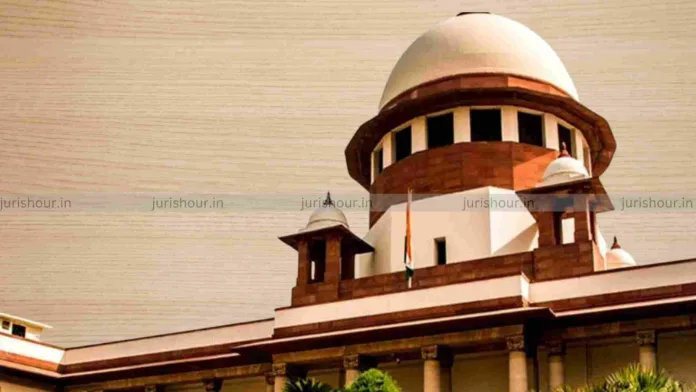The Supreme Court has held that the Goods and Service Tax (GST) refund from cash ledger cannot be withheld without just cause.
The bench of Justice Sudhanshu Dhulia and Justice Joymalya Bagchi has dismissed the Union of India’s challenge against a Delhi High Court judgment that quashed a GST authority’s order staying a sanctioned refund of Rs. 5.5 crore to M/s HCC VCCL Joint Venture, marking an important development in the interpretation of refund rights under the GST regime.
The matter stemmed from a refund order dated December 9, 2022, which sanctioned Rs. 5.5 crore—comprising amounts deducted as Tax Deducted at Source (TDS) by Delhi Metro Rail Corporation (DMRC)—in favour of HCC-VCCL JV. These amounts were credited to the petitioner’s Electronic Cash Ledger (ECL) as per the provisions under Section 51 of the Central Goods and Services Tax (CGST) Act.
Subsequently, a revisional authority of the GST Department invoked powers under Section 108 of the CGST Act and passed an order dated July 5, 2023, staying the refund, claiming it was “erroneous and prejudicial to the interest of revenue.” A corrigendum extended this stay from six months to two years.
The Delhi High Court bench comprising Justice Yashwant Varma and Justice Ravinder Dudeja, while allowing the writ petition (W.P.(C) 10940/2023), held that the stay order suffered from serious legal infirmities.
Electronic Cash Ledger ≠ Input Tax Credit: The Court rejected the notion that restrictions applicable to the Electronic Credit Ledger (ECL) should automatically extend to the Electronic Cash Ledger. It emphasized that amounts in the ECL are taxpayer’s funds, distinct from ITC, and unless a quantified demand exists, refund cannot be arbitrarily withheld.
Lack of Proper Reasoning in Revisional Order: The Court found that the revisional authority failed to record any specific or prima facie conclusion showing how the refund order was erroneous or prejudicial. The order merely cited “intelligence inputs” about potential ITC irregularities unrelated to the cash refund claim.
Misuse of Section 108: The revisional authority acted beyond the scope of Section 108, which requires a finding that the original order was “illegal, improper, or prejudicial to revenue.” The refund order under challenge dealt solely with amounts legitimately standing in the Electronic Cash Ledger, not ITC claims under scrutiny.
As such, the High Court quashed the stay order dated July 5, 2023, allowing the refund to proceed, while also granting liberty to the GST Department to initiate fresh proceedings in accordance with law if necessary.
Supreme Court: SLP Dismissed
The Supreme Court heard Special Leave Petition filed by the Union of India challenging the Delhi High Court’s ruling.
The Supreme Court, however, refused to interfere with the High Court’s decision, stating, “We see absolutely no reason to interfere with the order of the High Court, in exercise of our jurisdiction under Article 136 of the Constitution of India. However, the question of law, if any, is kept open.”
The Court also condoned the delay in filing the SLP but dismissed it, bringing closure to the refund-related proceedings in favour of the HCC-VCCL Joint Venture.
Case Details
Case Title: UNION OF INDIA & ORS. VERSUS M/S. HCC VCCL JOINT VENTURE
Case No.: SPECIAL LEAVE PETITION (CIVIL) Diary No(s). 24660/2025
Date: 09-07-2025
Read More: 30% Tax Rate Applies on Deemed Income for FY 2016–17, Not 60%: ITAT

